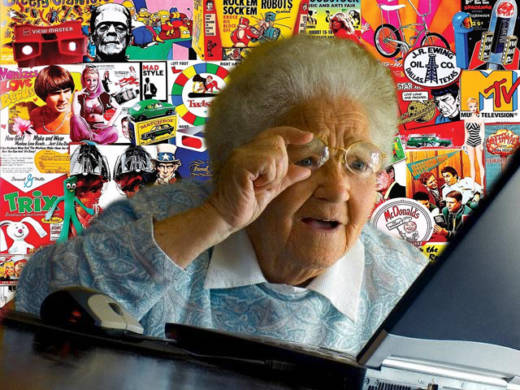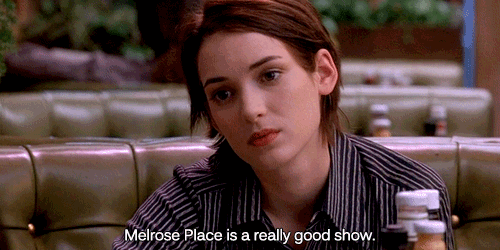From time to time, I remember with surprise that I'm not 16. While I'm not concerned about getting older (see: Beatrix Ost), I do find the process full of nuance and surprise, and I want to pay attention. We age so slowly that we simply don't notice it's happening most of the time, only stopping to observe that friends, parents, and celebrities are all getting older, and so perhaps we are as well.
As a teenager, I swore I'd never be one of those terrible adults who believes it's their generation who wrote the best books and played the best music. How depressing (and boring)! At age 38, I've kept that oath going strong. Contemporary culture is full of awesomeness (Kelly Lee Owens! 2 Dope Queens! Twitter as a breaking news source! The black heart emoji! The Handmaid's Tale!) Still, I'm beginning to have a sneaking suspicion that it's definitely possible to age out of pop culture. And if it is, should we resist or simply depart gracefully?
Society relentlessly reinforces the notion that at a certain age we begin to find pop culture irrelevant (and pop culture feels the same way about us). So, when I must google "what does smh stand for?" or my 30-year-old friends can find gifs faster than me, or I still don't like Snapchat, I've taken to exclaiming, "I'm getting old!" And of course I am.

I'm definitely comforted by the fact that the very idea of pop culture has been a little hazy and fickle from the get-go. Keith Anderson writes in The New York Times, "By and large, both entertainment and art appeal to niches, cultural tribes that range in size from tiny to smallish." The teenage years and early 20s are spent in actively seeking our niche, using what we're into and what we know in order to create and define a self that is still unformed, confusing and mysterious to us in many ways.




